#tech ad
Explore tagged Tumblr posts
Text

#gameboy#gameboy advance#nintendo#ad#tech ad#y2k#y2k aesthetic#y2k tech#2000s tech#early 2000s#gen x soft club#cyber y2k#vaporwave#cybercore#nintendocore
2K notes
·
View notes
Photo

Nokia Ad in Marie Claire Magazine [✩]
#magazine#ad#nokia#nokia phone#mobile phone#cell phone#tech ad#marie claire#90s#y2k#mp#mu#nostalgia#advertisement#tech#nostalgiacore
21 notes
·
View notes
Text

Happy final Bad Batch Eve, it's been an honor boyos
#star wars#tbb#the bad batch#hunter#wrecker#omega#crosshair#tech#echo#batcher#the bad batch spoilers#its been a blast guys. man im gonna miss bad batch eve#the cryptic tweets#storminormins art#Drawing this I just kept adding people on top of Wrecker- like#*Smacks Wrecker* this guy can hold so many clones
5K notes
·
View notes
Text
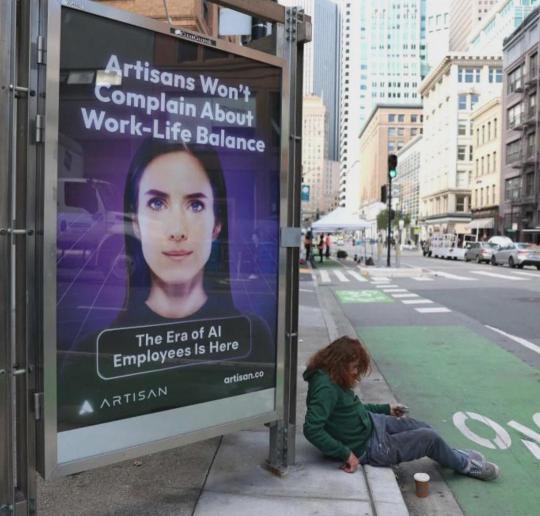

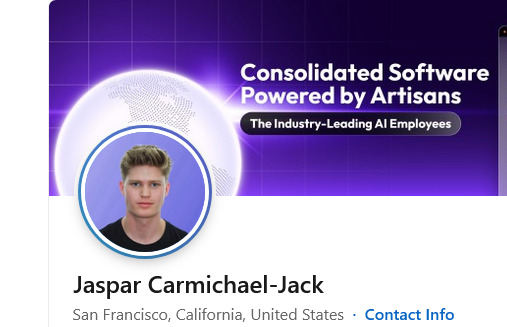
^^ That's the CEO, he lives in San Francisco. This ad campaign purposely antagonizing workers must have been conceived and planned before a certain recent news story involving a widely hated CEO. "The way the world works is changing", indeed.
#san francisco#ceo#ai#artisans#usa#propaganda of the deed#class war#tech#silicon valley#2024#workers#homeless#ads#advertisement#artificial intelligence#anti-capitalism
2K notes
·
View notes
Text
The Google antitrust remedy should extinguish surveillance, not democratize it
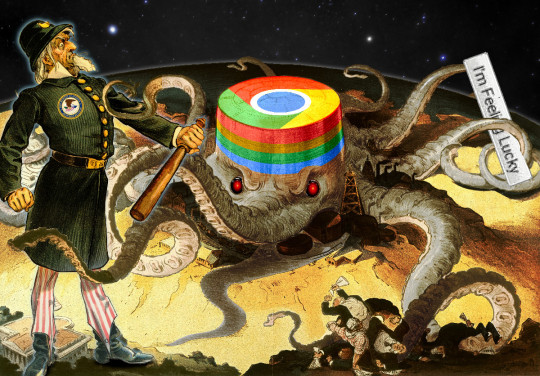
I'm coming to DEFCON! On FRIDAY (Aug 9), I'm emceeing the EFF POKER TOURNAMENT (noon at the Horseshoe Poker Room), and appearing on the BRICKED AND ABANDONED panel (5PM, LVCC - L1 - HW1–11–01). On SATURDAY (Aug 10), I'm giving a keynote called "DISENSHITTIFY OR DIE! How hackers can seize the means of computation and build a new, good internet that is hardened against our asshole bosses' insatiable horniness for enshittification" (noon, LVCC - L1 - HW1–11–01).

If you are even slightly plugged into the doings and goings on in this tired old world of ours, then you have heard that Google has lost its antitrust case against the DOJ Antitrust Division, and is now an official, no-foolin', convicted monopolist.
This is huge. Epochal. The DOJ, under the leadership of the fire-breathing trustbuster Jonathan Kanter, has done something that was inconceivable four years ago when he was appointed. On Kanter's first day on the job as head of the Antitrust Division, he addressed his gathered prosecutors and asked them to raise their hands if they'd never lost a case.
It was a canny trap. As the proud, victorious DOJ lawyers thrust their arms into the air, Kanter quoted James Comey, who did the same thing on his first day on the job as DA for the Southern District of New York: "You people are the chickenshit club." A federal prosecutor who never loses a case is a prosecutor who only goes after easy targets, and leave the worst offenders (who can mount a serious defense) unscathed.
Under Kanter, the Antitrust Division has been anything but a Chickenshit Club. They've gone after the biggest game, the hardest targets, and with Google, they bagged the hardest target of all.
Again: this is huge:
https://www.thebignewsletter.com/p/boom-judge-rules-google-is-a-monopolist
But also: this is just the start.
Now that Google is convicted, the court needs to decide what to do about it. Courts have lots of leeway when it comes to addressing a finding of lawbreaking. They can impose "conduct remedies" ("don't do that anymore"). These are generally considered weaksauce, because they're hard to administer. When you tell a company like Google to stop doing something, you need to expend a lot of energy to make sure they're following orders. Conduct remedies are as much a punishment for the government (which has to spend millions closely observing the company to ensure compliance) as they are for the firms involved.
But the court could also order Google to stop doing certain things. For example, since the ruling finds that Google illegally maintained its monopoly by paying other entities – Apple, Mozilla, Samsung, AT&T, etc – to be the default search, the court could order them to stop doing that. At the very least, that's a lot easier to monitor.
The big guns, though are the structural remedies. The court could order Google to sell off parts of its business, like its ad-tech stack, through which it represents both buyers and sellers in a marketplace it owns, and with whom it competes as a buyer and a seller. There's already proposed, bipartisan legislation to do this (how bipartisan? Its two main co-sponsors are Ted Cruz and Elizabeth Warren!):
https://pluralistic.net/2023/05/25/structural-separation/#america-act
All of these things, and more, are on the table:
https://www.wired.com/story/google-search-monopoly-judge-amit-mehta-options/
We'll get a better sense of what the judge is likely to order in the fall, but the case could drag out for quite some time, as Google appeals the verdict, then tries for the Supreme Court, then appeals the remedy, and so on and so on. Dragging things out in the hopes of running out the clock is a time-honored tradition in tech antitrust. IBM dragged out its antitrust appeals for 12 years, from 1970 to 1982 (they called it "Antitrust's Vietnam"). This is an expensive gambit: IBM outspent the entire DOJ Antitrust Division for 12 consecutive years, hiring more lawyers to fight the DOJ than the DOJ employed to run all of its antitrust enforcement, nationwide. But it worked. IBM hung in there until Reagan got elected and ordered his AG to drop the case.
This is the same trick Microsoft pulled in the nineties. The case went to trial in 1998, and Microsoft lost in 1999. They appealed, and dragged out the proceedings until GW Bush stole the presidency in 2000 and dropped the case in 2001.
I am 100% certain that there are lawyers at Google thinking about this: "OK, say we put a few hundred million behind Trump-affiliated PACs, wait until he's president, have a little meeting with Attorney General Andrew Tate, and convince him to drop the case. Worked for IBM, worked for Microsoft, it'll work for us. And it'll be a bargain."
That's one way things could go wrong, but it's hardly the only way. In his ruling, Judge Mehta rejected the DOJ's argument that in illegally creating and maintaining its monopoly, Google harmed its users' privacy by foreclosing on the possibility of a rival that didn't rely on commercial surveillance.
The judge repeats some of the most cherished and absurd canards of the marketing industry, like the idea that people actually like advertisements, provided that they're relevant, so spying on people is actually doing them a favor by making it easier to target the right ads to them.
First of all, this is just obvious self-serving rubbish that the advertising industry has been repeating since the days when it was waging a massive campaign against the TV remote on the grounds that people would "steal" TV by changing the channel when the ads came on. If "relevant" advertising was so great, then no one would reach for the remote – or better still, they'd change the channel when the show came back on, looking for more ads. People don't like advertising. And they hate "relevant" advertising that targets their private behaviors and views. They find it creepy.
Remember when Apple offered users a one-click opt-out from Facebook spying, the most sophisticated commercial surveillance system in human history, whose entire purpose was to deliver "relevant" advertising? More than 96% of Apple's customers opted out of surveillance. Even the most Hayek-pilled economist has to admit that this is a a hell of a "revealed preference." People don't want "relevant" advertising. Period.
The judge's credulous repetition of this obvious nonsense is doubly disturbing in light of the nature of the monopoly charge against Google – that the company had monopolized the advertising market.
Don't get me wrong: Google has monopolized the advertising market. They operate a "full stack" ad-tech shop. By controlling the tools that sellers and buyers use, and the marketplace where they use them, Google steals billions from advertisers and publishers. And that's before you factor in Jedi Blue, the illegal collusive arrangement the company has with Facebook, by which they carved up the market to increase their profits, gouge advertisers, starve publishers, and keep out smaller rivals:
https://en.wikipedia.org/wiki/Jedi_Blue
One effect of Google's monopoly power is a global privacy crisis. In regions with strong privacy laws (like the EU), Google uses flags of convenience (looking at you, Ireland) to break the law with impunity:
https://pluralistic.net/2023/05/15/finnegans-snooze/#dirty-old-town
In the rest of the world, Google works with other members of the surveillance cartel to prevent the passage of privacy laws. That's why the USA hasn't had a new federal privacy law since 1988, when Congress acted to ban video-store clerks from telling newspaper reporters about the VHS cassettes you took home:
https://en.wikipedia.org/wiki/Video_Privacy_Protection_Act
The lack of privacy law and privacy enforcement means that Google can inflict untold privacy harms on billions of people around the world. Everything we do, everywhere we go online and offline, every relationship we have, everything we buy and say and do – it's all collected and stored and mined and used against us. The immediate harm here is the haunting sense that you are always under observation, a violation of your fundamental human rights that prevents you from ever being your authentic self:
https://www.theguardian.com/technology/blog/2013/jun/14/nsa-prism
The harms of surveillance aren't merely spiritual and psychological – they're material and immediate. The commercial surveillance industry provides the raw feedstock for a parade of horribles, from stalkers and bounty hunters turning up on their targets' front doors to cops rounding up demonstrators with location data from their phones to identity thieves tricking their marks by using leaked or purchased private information as convincers:
https://pluralistic.net/2023/12/06/privacy-first/#but-not-just-privacy
The problem with Google's monopolization of the surveillance business model is that they're spying on us. But for a certain kind of competition wonk, the problem is that Google is monopolizing the violation of our human rights, and we need to use competition law to "democratize" commercial surveillance.
This is deeply perverse, but it represents a central split in competition theory. Some trustbusters fetishize competition for its own sake, on the theory that it makes companies better and more efficient. But there are some things we don't want companies to be better at, like violating our human rights. We want to ban human rights violations, not improve them.
For other trustbusters – like me – the point of competition enforcement isn't merely to make companies offer better products, it's to make companies small enough to hold account through the enforcement of democratic laws. I want to break – and break up – Google because I want to end its ability to bigfoot privacy law so that we can finally root out the cancer of commercial surveillance. I don't want to make Google smaller so that other surveillance companies can get in on the game.
There is a real danger that this could emerge from this decision, and that's a danger we need to guard against. Last month, Google shocked the technical world by announcing that it would not follow through on its years-long promise to kill third-party cookies, one of the most pernicious and dangerous tools of commercial surveillance. The reason for this volte-face appears to be concern that the EU would view killing third-party cookies as anticompetitive, since Google intended to maintain commercial surveillance using its Orwellian "Privacy Sandbox" technology in Chrome, with the effect that everyone except Google would find it harder to spy on us as we used the internet:
https://www.thebignewsletter.com/p/googles-trail-of-crumbs
It's true! This is anticompetitive. But the answer isn't to preserve the universal power of tech companies large and small to violate our human rights – it's to ban everyone, especially Google, from spying on us!
This current in competition law is still on the fringe, but the Google case – which finds the company illegally dominating surveillance advertising, but rejects the idea that surveillance is itself a harm – offers an opportunity for this bad idea to go from the fringe to the center.
If that happens, look out.
Take "attribution," an obscure bit of ad-tech jargon disguising a jaw-droppingly terrible practice. "Attribution" is when an ad-tech company shows you an ad, and then follows you everywhere you go, monitoring everything you do, to determine whether the ad convinced you to buy something. I mean that literally: they're combining location data generated by your phone and captured by Bluetooth and wifi receivers with data from your credit card to follow you everywhere and log everything, so that they can prove to a merchant that you bought something.
This is unspeakably grotesque. It should be illegal. In many parts of the world, it is illegal, but it is so lucrative that monopolists like Google can buy off the enforcers and get away with it. What's more, only the very largest corporations have the resources to surveil you so closely and invasively that they can perform this "service."
But again, some competition wonks look at this situation and say, "Well, that's not right, we need to make sure that everyone can do attribution." This was a (completely mad) premise in the (otherwise very good) 2020 Competition and Markets Authority market-study on "Online platforms and digital advertising":
https://assets.publishing.service.gov.uk/media/5fa557668fa8f5788db46efc/Final_report_Digital_ALT_TEXT.pdf
This (again, otherwise sensible) document veers completely off the rails whenever the subject of attribution comes up. At one point, the authors propose that the law should allow corporations to spy on people who opt out of commercial surveillance, provided that this spying is undertaken for the sole purpose of attribution.
But it gets even worse: by the end of the document, the authors propose a "user ID intervention" to give every Briton a permanent, government-issued advertising identifier to make it easier for smaller companies to do attribution.
Look, I understand why advertisers like attribution and are willing to preferentially take their business to companies that can perform it. But the fact that merchants want to be able to peer into every corner of our lives to figure out how well their ads are performing is no basis for permitting them to do so – much less intervening in the market to make it even easier so more commercial snoops can get their noses in our business!
This is an idea that keeps popping up, like in this editorial by a UK lawyer, where he proposes fixing "Google's dominance of online advertising" by making it possible for everyone to track us using the commercial surveillance identifiers created and monopolized by the ad-tech duopoly and the mobile tech duopoly:
https://www.thesling.org/what-to-do-about-googles-dominance-of-online-advertising/
Those companies are doing something rotten. In dominating ads, they have stolen billions from publishers and advertisers. Then they used those billions to capture our democratic process and ensure that our human rights weren't being defended as they plundered our private data and put us in harm's way.
Advertising will adapt. The marketing bros know this is coming. They're already discussing how to live in a world where you can't measure clicks and you can't attribute actions (e.g. the world from the first advertisements up until the early 2000s):
https://sparktoro.com/blog/attribution-is-dying-clicks-are-dying-marketing-is-going-back-to-the-20th-century/
An equitable solution to Google's monopoly will not run though our right to privacy. We don't solve the Google monopoly by creating competition in surveillance. The reason to get rid of Google's monopoly is to make it easier to end surveillance.

If you'd like an essay-formatted version of this post to read or share, here's a link to it on pluralistic.net, my surveillance-free, ad-free, tracker-free blog:
https://pluralistic.net/2024/08/07/revealed-preferences/#extinguish-v-improve

Image: Cryteria (modified) https://commons.wikimedia.org/wiki/File:HAL9000.svg
CC BY 3.0 https://creativecommons.org/licenses/by/3.0/deed.en
#pluralistic#google#antitrust#monopolies#remedies#ad-tech#competition#power#doj v google#attribution
1K notes
·
View notes
Text

General Electric ad - 1988
#80s#1980s#vintage#80s ads#vintage tech#80s nostalgia#1980s nostalgia#80s music#1980s music#1980s aesthetic#80s aesthetic#general electric#throwbackblr
756 notes
·
View notes
Text

Sony CMD-J5 (2000)
#sony#sony cmd-j5#y2k#2000s#old tech#webcore#early 2000s#frutiger eco#frutiger metro#magazine#magazine ad
481 notes
·
View notes
Text


ೃ༄ੈ✩‧₊˚
404 notes
·
View notes
Text


‘Galerians’ Japanese Print Ad (PS1, 1999)
#galerians#print ads#japan#advertising#japanese#1999#video games#gamer#gamer aesthetic#gamercore#gamers of tumblr#tech#creepy#horror#eye#ps1#playstation#psone#psx
2K notes
·
View notes
Text

#animated gif#animated gifs#gif#gifs#old advertisements#old ads#retro#vhs#animation#animated#orca#whale#old computers#old tech#fake computer screen#nicks#orcinus orca#stats#voice print#now we can steal it's identity#90s
426 notes
·
View notes
Text

Sony Walkman Beans (1995)
#sony#sony walkman#sony walkman beans#walkman beans#cassette player#90s#rie isono#frutiger aero#colorful tech#translucent tech#translucent#transparent#transparent tech#90s tech#y2k#y2k aesthetic#y2k tech#tech ad#tech ads#gen x soft club
478 notes
·
View notes
Text
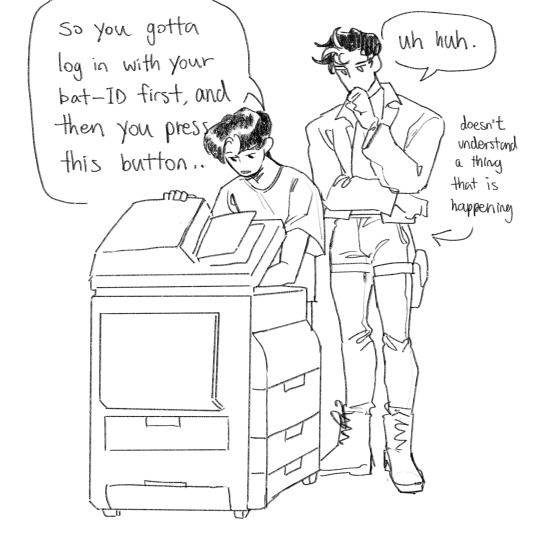
oracle over comms: can someone show red hood how to use the printer in the batcave
#they added touch screens to printers and now they're evil#sorry jason#you can defeat death and still die at the hands of a HP Color LaserJet#tim is the batcave tech support intern#batfam#my art
6K notes
·
View notes
Text

IBM ThinkPad 701 with Butterfly Keyboard design by John Karidis
source: mycommercials
#IBM#IBM ThinkPad 701#black color#dark aesthetic#retro tech#retro#retrowave#retro ads#retro computing#techcore#retro design#retro aesthetic#ThinkPad#vaporwave#90s#90s aesthetic#1990s#1990s aesthetic#VHS#vhs aesthetic#commercial#90s commercials#gifs
3K notes
·
View notes
Text

Sony: MDR-EX70 magazine ad (2002)
1K notes
·
View notes
Text
Prime’s enshittified advertising
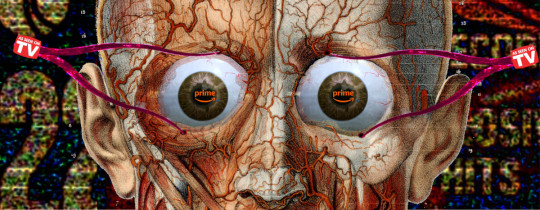
Prime's gonna add more ads. They brought in ads in January, and people didn't cancel their Prime subscriptions, so Amazon figures that they can make Prime even worse and make more money:
https://arstechnica.com/gadgets/2024/10/amazon-prime-video-is-getting-more-ads-next-year/
The cruelty isn't the point. Money is the point. Every ad that Amazon shows you shifts value away from you – your time, your attention – to the company's shareholders.
That's the crux of enshittification. Companies don't enshittify – making their once-useful products monotonically worse – because it amuses them to erode the quality of their offerings. They enshittify them because their products are zero-sum: the things that make them valuable to you (watching videos without ads) make things less valuable to them (because they can't monetize your attention).
This isn't new. The internet has always been dominated by intermediaries – platforms – because there are lots more people who want to use the internet than are capable of building the internet. There's more people who want to write blogs than can make a blogging app. There's more people who want to play and listen to music than can host a music streaming service. There's more people who want to write and read ebooks than want to operate an ebook store or sell an ebooks reader.
Despite all the early internet rhetoric about the glories of disintermediation, intermediaries are good, actually:
https://pluralistic.net/2022/06/12/direct-the-problem-of-middlemen/
The problem isn't with intermediaries per se. The problem arises when intermediaries grow so powerful that they usurp the relationship between the parties they connect. The problem with Uber isn't the use of mobile phones to tell taxis that you're standing on a street somewhere and would like a cab, please. The problem is rampant worker misclassification, regulatory arbitrage, starvation wages, and price-gouging:
https://pluralistic.net/2024/02/29/geometry-hates-uber/#toronto-the-gullible
There's no problem with publishers, distributors, retailers, printers, and all the other parts of the bookselling ecosystem. While there are a few, rare authors who are capable of performing all of these functions – basically gnawing their books out of whole logs with their teeth – most writers can't, and even the ones who can, don't want to:
https://pluralistic.net/2024/02/19/crad-kilodney-was-an-outlier/#intermediation
When early internet boosters spoke of disintermediation, what they mostly meant was that it would be harder for intermediaries to capture those relationships – between sellers and buyers, creators and audiences, workers and customers. As Rebecca Giblin and I wrote in our 2022 book Chokepoint Capitalism, intermediaries in every sector rely on chokepoints, narrows where they can erect tollbooths:
https://chokepointcapitalism.com/
When chokepoints exist, they multiply up and down the supply chain. In the golden age of physical, recorded music, you had several chokepoints that reinforced one another. Limited radio airwaves gave radio stations power over record labels, who had to secretly, illegally bid for prime airspace ("payola"). Retail consolidation – the growth of big record chains – drove consolidation in the distributors who sold to the chains, and the more concentrated distributors became, the more they could squeeze retailers, which drove even more consolidation in record stores. The bigger a label was, the more power it had to shove back against the muscle of the stores and the distributors (and the pressing plants, etc). Consolidation in labels also drove consolidation in talent agencies, whose large client rosters gave them power to resist the squeeze from the labels. Consolidation in venues drives consolidation in ticketing and promotion – and vice-versa.
But there's two parties to this supply chain who can't consolidate: musicians and their fans. With limits on "sectoral bargaining" (where unions can represent workers against all the companies in a sector), musicians' unions were limited in their power against key parts of the supply chain, so the creative workers who made the music were easy pickings for labels, talent reps, promoters, ticketers, venues, retailers, etc. Music fans are diffused and dispersed, and organized fan clubs were usually run by the labels, who weren't about to allow those clubs to be used against the labels.
This is a perfect case-study in the problems of powerful intermediaries, who move from facilitator to parasite, paying workers less while degrading their products, and then charge customers more for those enshittified products.
The excitement about "disintermediation" wasn't so much about eliminating intermediaries as it was about disciplining them. If there were lots of ways to market a product or service, sell it, collect payment for it, and deliver it, then the natural inclination of intermediaries to turn predator would be curbed by the difficulty of corralling their prey into chokepoints.
Now that we're a quarter century on from the Napster Wars, we can see how that worked out. Decades of failure to enforce antitrust law allowed a few companies to effectively capture the internet, buying out rivals who were willing to sell, and bankrupting those who wouldn't with illegal tactics like predatory pricing (think of Uber losing $31 billion by subsidizing $0.41 out of every dollar they charged for taxi rides for more than a decade).
The market power that platforms gained through consolidation translated into political power. When a few companies dominate a sector, they're able to come to agreement on common strategies for dealing with their regulators, and they've got plenty of excess profits to spend on those strategies. First and foremost, platforms used their power to get more power, lobbying for even less antitrust enforcement. Additionally, platforms mobilized gigantic sums to secure the right to screw customers (for example, by making binding arbitration clauses in terms of service enforceable) and workers (think of the $225m Uber and Lyft spent on California's Prop 22, which formalized their worker misclassification swindle).
So big platforms were able to insulate themselves from the risk of competition ("five giant websites, filled with screenshots of the other four" – Tom Eastman), and from regulation. They were also able to expand and mobilize IP law to prevent anyone from breaking their chokepoints or undoing the abuses that these enabled. This is a good place to get specific about how Prime Video works.
There's two ways to get Prime videos: over an app, or in your browser. Both of these streams are encrypted, and that's really important here, because of a law – Section 1201 of the 1998 Digital Millennium Copyright Act – which makes it really illegal to break this kind of encryption (commonly called "Digital Rights Management" or "DRM"). Practically speaking, that means that if a company encrypts its videos, no one is allowed to do anything to those videos, even things that are legal, without the company's permission, because doing all those legal things requires breaking the DRM, and breaking the DRM is a felony (five years in prison, $500k fine, for a first offense).
Copyright law actually gives subscribers to services like Prime a lot of rights, and it empowers businesses that offer tools to exercise those rights. Back in 1976, Sony rolled out the Betamax, the first major home video recorder. After an eight-year court battle, the Supreme Court weighed in on VCRs and ruled that it was legal for all of us to record videos at home, both to watch them later, and to build a library of our favorite shows. They also ruled that it was legal for Sony – and by that time, every other electronics company – to make VHS systems, even if those systems could be used in ways that violated copyright because they were "capable of sustaining a substantial non-infringing use" (letting you tape shows off your TV).
Now, this was more than a decade before the DMCA – and its prohibition on breaking DRM – passed, but even after the DMCA came into effect, there was a lot of media that didn't have DRM, so a new generation of tech companies were able to make tools that were "capable of sustaining a substantial non-infringing use" and that didn't have to break any DRM to do it.
Think of the Ipod and Itunes, which, together, were sold as a way to rip CDs (which weren't encrypted), and play them back from both your desktop computer and a wildly successful pocket-sized portable device. Itunes even let you stream from one computer to another. The record industry hated this, but they couldn't do anything about it, thanks to the Supreme Court's Betamax ruling.
Indeed, they eventually swallowed their bile and started selling their products through the Itunes Music Store. These tracks had DRM and were thus permanently locked to Apple's ecosystem, and Apple immediately used that power to squeeze the labels, who decided they didn't like DRM after all, and licensed all those same tracks to Amazon's DRM-free MP3 store, whose slogan was "DRM: Don't Restrict Me":
https://memex.craphound.com/2008/02/01/amazons-anti-drm-tee/
Apple played a funny double role here. In marketing Itunes/Ipods ("Rip, Mix, Burn"), they were the world's biggest cheerleaders for all the things you were allowed to do with copyrighted works, even when the copyright holder objected. But with the Itunes Music Store and its mandatory DRM, the company was also one of the world's biggest cheerleaders for wrapping copyrighted works in a thin skin of IP that would allow copyright holders to shut down products like the Ipod and Itunes.
Microsoft, predictably enough, focused on the "lock everything to our platform" strategy. Then-CEO Steve Ballmer went on record calling every Ipod owner a "thief" and arguing that every record company should wrap music in Microsoft's Zune DRM, which would allow them to restrict anything they didn't like, even if copyright allowed it (and would also give Microsoft the same abusive leverage over labels that they famously exercised over Windows software companies):
https://web.archive.org/web/20050113051129/http://management.silicon.com/itpro/0,39024675,39124642,00.htm
In the end, Amazon's approach won. Apple dropped DRM, and Microsoft retired the Zune and shut down its DRM servers, screwing anyone who'd ever bought a Zune track by rendering that music permanently unplayable.
Around the same time as all this was going on, another company was making history by making uses of copyrighted works that the law allowed, but which the copyright holders hated. That company was Tivo, who products did for personal video recorders (PVRs) what Apple's Ipod did for digital portable music players. With a Tivo, you could record any show over cable (which was too expensive and complicated to encrypt) and terrestrial broadcast (which is illegal to encrypt, since those are the public's airwaves, on loan to the TV stations).
That meant that you could record any show, and keep it forever. What's more, you could very easily skip through ads (and rival players quickly emerged that did automatic ad-skipping). All of this was legal, but of course the cable companies and broadcasters hated it. Like Ballmer, TV execs called Tivo owners "thieves."
But Tivo didn't usher in the ad-supported TV apocalypse that furious, spittle-flecked industry reps insisted it would. Rather, it disciplined the TV and cable operators. Tivo owners actually sought out ads that were funny and well-made enough to go viral. Meanwhile, every time the industry decided to increase the amount of advertising in a show, they also increased the likelihood that their viewers would seek out a Tivo, or worse, one of those auto-ad-skipping PVRs.
Given all the stink that TV execs raised over PVRs, you'd think that these represented a novel threat. But in fact, the TV industry's appetite for ads had been disciplined by viewers' access to new technology since 1956, when the first TV remotes appeared on the market (executives declared that anyone who changed the channel during an ad-break was a thief). Then came the mute button. Then the wireless remote. Meanwhile, a common VCR use-case – raised in the Supreme Court case – was fast-forwarding ads.
At each stage, TV adapted. Ads in TV shows represented a kind of offer: "Will you watch this many of these ads in return for a free TV show?" And the remote, the mute button, the wireless remote, the VCR, the PVR, and the ad-skipping PVR all represented a counter-offer. As economists would put it, the ability of viewers to make these counteroffers "shifted the equilibrium." If viewers had no defensive technology, they might tolerate more ads, but once they were able to enforce their preferences with technology, the industry couldn't enshittify its product to the liminal cusp of "so many ads that the viewer is right on the brink of turning off the TV (but not quite)."
This is the same equilibrium-shifting dynamic that we see on the open web, where more than 50% of users have installed an ad-blocker. The industry says, "Will you allow this many 'sign up to our mailing list' interrupters, pop ups, pop unders, autoplaying videos and other stuff that users hate but shareholders benefit from" and the ad-blocker makes a counteroffer: "How about 'nah?'":
https://www.eff.org/deeplinks/2019/07/adblocking-how-about-nah
TV remotes, PVRs and ad-blockers are all examples of "adversarial interoperability" – a new product that plugs into an existing one, extending or modifying its functions without permission from (or even over the objections of) the original manufacturer:
https://www.eff.org/deeplinks/2019/10/adversarial-interoperability
Adversarial interop creates a powerful disciplining force on platform owners. Once a user grows so frustrated with a product's enshittification that they research, seek out, acquire and learn to use an adversarial interop tool, it's really game over. The printer owner who figures out where to get third-party ink is gone forever. Every time a company like HP raises its prices, they have to account for the number of customers who will finally figure out how to use generic ink and never, ever send another cent to HP.
This is where DMCA 1201 comes into play. Once a product is skinned with DRM, its manufacturers gain the right to prevent you from doing legal things, and can use the public's courts and law-enforcement apparatus to punish you for trying. Take HP: as soon as they started adding DRM to their cartridges, they gained the legal power to shut down companies that cloned, refilled or remanufactured their cartridges, and started raising the price of ink – which today sits at more than $10,000/gallon:
https://pluralistic.net/2024/09/30/life-finds-a-way/#ink-stained-wretches
Using third party ink in your printer isn't illegal (it's your printer, right?). But making third party ink for your printer becomes illegal once you have to break DRM to do so, and so HP gets to transform tinted water into literally the most expensive fluid on Earth. The ink you use to print your kid's homework costs more than vintage Veuve Cliquot or sperm from a Kentucky Derby-winning thoroughbred.
Adversarial interoperability is a powerful tool for shifting the equilibrium between producers, intermediaries and buyers. DRM is an even more powerful way of wrenching that equilibrium back towards the intermediary, reducing the share that buyers and sellers are able to eke out of the transaction.
Prime Video, of course, is delivered via an app, which means it has DRM. That means that subscribers don't get to exercise the rights afforded to them by copyright – only the rights that Amazon permits them to have. There's no Tivo for Prime, because it would have to break the DRM to record the shows you stream from Prime. That allows Prime to pull all kinds of shady shit. For example, every year around this time, Amazon pulls popular Christmas movies from its free-to-watch tier and moves them into pay-per-view, only restoring them in the spring:
https://www.reddit.com/r/vudu/comments/1bpzanx/looks_like_amazon_removed_the_free_titles_from/
And of course, Prime sticks ads in its videos. You can't skip these ads – not because it's technically challenging to make a 30-second advance button for a video stream, and doing so wouldn't violate anyone's copyright – but because Amazon doesn't permit you to do so, and the fact that the video is wrapped in DRM makes it a felony to even try.
This means that Amazon gets to seek a different equilibrium than TV companies have had to accept since 1956 and the invention of the TV remote. Amazon doesn't have to limit the quantity, volume, and invasiveness of its ads to "less the amount that would drive our subscribers to install and use an ad-skipping plugin." Instead, they can shoot for the much more lucrative equilibrium of "so obnoxious that the viewer is almost ready to cancel their subscription (but not quite)."
That's pretty much exactly how Kelly Day, the Amazon exec in charge of Prime Video, put it to the Financial Times: they're increasing the number of ads because "we haven’t really seen a groundswell of people churning out or cancelling":
https://www.ft.com/content/f8112991-820c-4e09-bcf4-23b5e0f190a5
At this point, attentive readers might be asking themselves, "Doesn't Amazon have to worry about Prime viewers who watch in their browsers?" After all browsers are built on open standards, and anyone can make one, so there should be browsers that can auto-skip Prime ads, right?
Wrong, alas. Back in 2017, the W3C – the organization that makes the most important browser standards – caved to pressure from the entertainment industry and the largest browser companies and created "Encrypted Media Extensions" (EME), a "standard" for video DRM that blocks all adversarial interoperability:
https://www.eff.org/deeplinks/2017/09/open-letter-w3c-director-ceo-team-and-membership
This had the almost immediate effect of making it impossible to create an independent browser without licensing proprietary tech from Google – now a convicted monopolist! – who won't give you a license if you implement recording, ad-skipping, or any other legal (but dispreferred) feature:
https://blog.samuelmaddock.com/posts/the-end-of-indie-web-browsers/
This means that for Amazon, there's no way to shift value away from the platform to you. The company has locked you in, and has locked out anyone who might offer you a better deal. Companies that know you are technologically defenseless are endlessly inventive in finding ways to make things worse for you to make things better for them. Take Youtube, another DRM-video-serving platform that has jacked up the number of ads you have to sit through in order to watch a video – even as they slash payments to performers. They've got a new move: they're gonna start showing you ads while your video is paused:
https://www.usatoday.com/story/money/2024/09/20/youtube-pause-ads-rollout/75306204007/
That is the kind of fuckery you only come up with when your victory condition is "a service that's almost so bad our customers quit (but not quite)."
In Amazon's case, the math is even worse. After all, Youtube may have near-total market dominance over a certain segment of the video market, but Prime Video is bundled with Prime Delivery, which the vast majority of US households subscribe to. You have to give up a lot to cancel your Prime subscription – especially since Amazon's predatory pricing devastated the rest of the retail sector:
https://pluralistic.net/2022/11/28/enshittification/#relentless-payola
Amazon's founding principle was "customer obsession." Ex-Amazoners tell me that this was more than an empty platitude: arguments over product design were won or lost based on whether they could satisfy the "customer obsession" litmus test. Now, everyone falls short of their ideals, but sticking to your ideals isn't merely a matter of internal discipline, of willpower. Living up to your ideals is a matter of external discipline, too. When Amazon no longer had to contend with competitors or regulators, when it was able to use DRM to control its customers and use the law to prevent them from using its products in legal ways, it lost those external sources of discipline.
Amazon suppliers have long complained of the company's high-handed treatment of the vendors who supplied it with goods. Its workers have complained bitterly and loudly about the dangerous and oppressive conditions in its warehouses and delivery vans. But Amazon's customers have consistently given Amazon high marks on quality and trustworthiness.
The reason Amazon treated its workers and suppliers badly and its customers well wasn't that it liked customers and hated workers and suppliers. Amazon was engaged in a cold-blooded calculus: it understood that treating customers well would give it control over those customers, and that this would translate market power to retain suppliers even as it ripped them off and screwed them over.
But now, Amazon has clearly concluded that it no longer needs to keep customers happy in order to retain them. Instead, it's shooting for "keeping customers so angry that they're almost ready to take their business elsewhere (but not quite)." You see this in the steady decline of Amazon product search, which preferences the products that pay the biggest bribes for search placement over the best matches:
https://pluralistic.net/2023/11/06/attention-rents/#consumer-welfare-queens
And you see it in the steady enshittification of Prime Video. Amazon's character never changed. The company always had a predatory side. But now that monopoly and IP law have insulated it from consequences for its actions, there's no longer any reason to keep the predator in check.

Tor Books as just published two new, free LITTLE BROTHER stories: VIGILANT, about creepy surveillance in distance education; and SPILL, about oil pipelines and indigenous landback.


If you'd like an essay-formatted version of this post to read or share, here's a link to it on pluralistic.net, my surveillance-free, ad-free, tracker-free blog:
https://pluralistic.net/2024/10/03/mother-may-i/#minmax
767 notes
·
View notes
Text
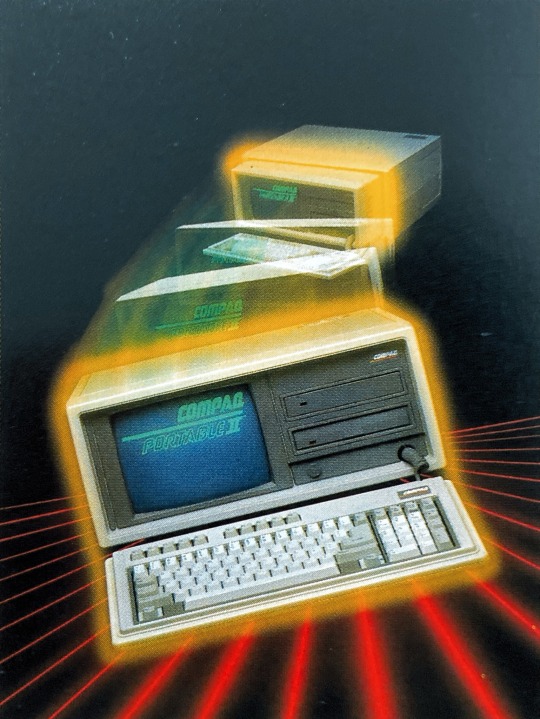
Benedetto Garacci, from Adweek Portfolio (1988)
scan
#80's#retro 80's#retro#vhs power graphics#technology#retro 80s#vintage#80s#80's ad#compaq#retro computing#80s technology#retro technology#retro tech#80s computer
2K notes
·
View notes